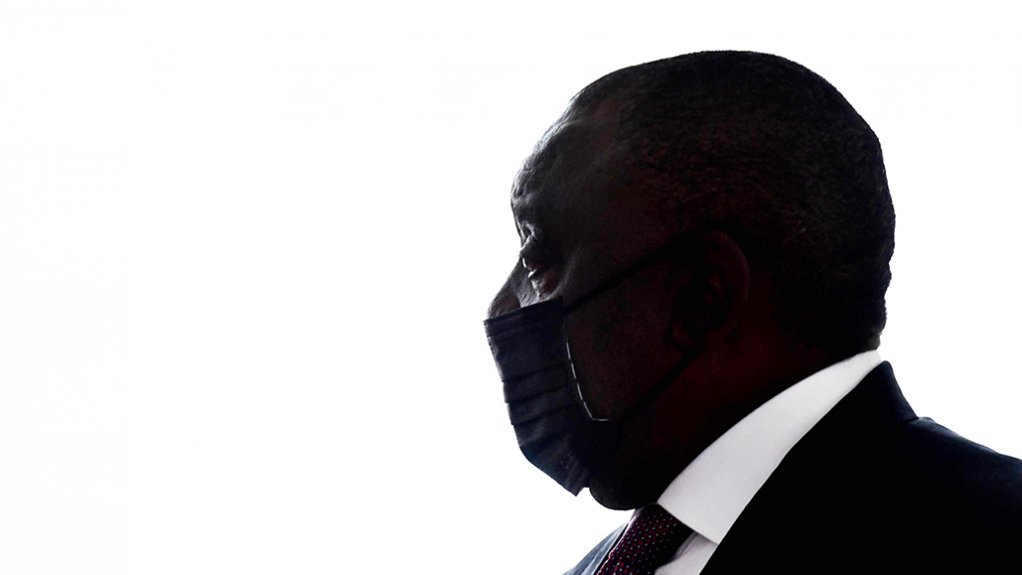President Cyril Ramaphosa, on Wednesday, made his long-awaited appearance at the Zondo Commission of Inquiry into State Capture, in his capacity as leader of the African National Congress (ANC).
In his opening statement, he said he did not appear before the commission to make excuses or to defend the indefensible and stressed that the ANC would assist the commission in its work in any way possible.
“The ANC has consistently expressed its support for the objectives and the work of this commission. The ANC has taken this position knowing that the organisation may be placed under great scrutiny and that the process of examining these matters will likely be difficult and painful for the ANC. Nevertheless, the ANC maintains that this commission maintains a necessary part of the broader social effort to end State capture and corruption,” Ramaphosa stated.
He said the ANC recognised the extent to which some party leaders and members were advertently and inadvertently complicit in corruption and reiterated the party’s position that leaders and members who were found to be complicit in corruption must face the might of the law, adding that their actions would be in direct violation not only of the laws of the republic but also of the ANC constitution, its values and principles and the resolutions and decisions of the ANC’s constitutional structure.
He said there was broad support in the ANC for the implementation of the step-aside policy, which asks ANC members who are charged with corruption or other charges to step aside from their positions pending the finalisation of the cases. Members who do not step aside may be suspended.
Ramaphosa added that accused members must also appear before the ANC’s integrity commission to provide a credible explanation for the allegations made against them and that failing to do so may result in suspension.
Ramaphosa warned that ANC members who were found to be complicit in corrupt activities could not rely on the support of the ANC for protection and cautioned such members against using the principle of “collective responsibility” in accounting for their actions.
Members must be accountable for their actions themselves, he said, and stressed that the ANC did not and could never direct its members or leaders to commit acts of corruption.
Ramaphosa stated that the ANC distances itself from members who were involved in corruption or who were complicit in State capture, and said the party acknowledges that it must provide explanations for the matters currently under investigation by the commission.
“We should do so because State capture took place under our watch as the governing party. It involved some members and leaders of our organisations and it found fertile ground in the divisions and the weakness and the tendencies that have developed in the organisation since 1994. I should say however that the vast majority of ANC leaders, ANC cadres and ANC members are vehemently opposed to corruption in all its manifestations, but we all acknowledge that the organisation could and should have done more to prevent the abuse of power and the misappropriation of resources that defined the era of State capture,” he admitted.
He said one of the earliest claims of influence by the Gupta family over the executive was made by Minister Fikile Mbalula, however, he admitted that as far as he was aware, the claim was never investigated.
Ramaphosa said the ANC had, over the course of the last few years, recognised corruption within the State, in its own ranks and in other parts of society, and added that the party has taken a number of resolutions to address this, including the establishment of the State capture commission.
He revealed that State capture was a matter of political contestation in the ANC, with differences being expressed about its existence, its extent and what should be done about it. He said this contributed to divisions within the ANC national executive committee and other ANC structures.
“The ANC has embarked on a process of renewal and rebuilding to build a movement characterised by integrity and accountability. It’s not a one day event and is a process that is ongoing,” Ramaphosa said.
He acknowledged that the party had made mistakes as it sought to execute the mandate given to it by voters and said the party had shortcomings in living up to the expectations of South Africans in relations to enforcing accountability and engendering a culture of defective consequence management.
“We acknowledge to the people of South Africa that we did not always live up to the values and principles that defined the glorious movement we belong to for over more than a century of its existence. We are, however, determined and we undertake to work alongside all South Africans to ensure that the era of State capture is relegated to history and that the excesses that took place may never, never, never, ever occur in our country again,” Ramaphosa ended.
His testimony continues.
EMAIL THIS ARTICLE SAVE THIS ARTICLE ARTICLE ENQUIRY
To subscribe email subscriptions@creamermedia.co.za or click here
To advertise email advertising@creamermedia.co.za or click here











